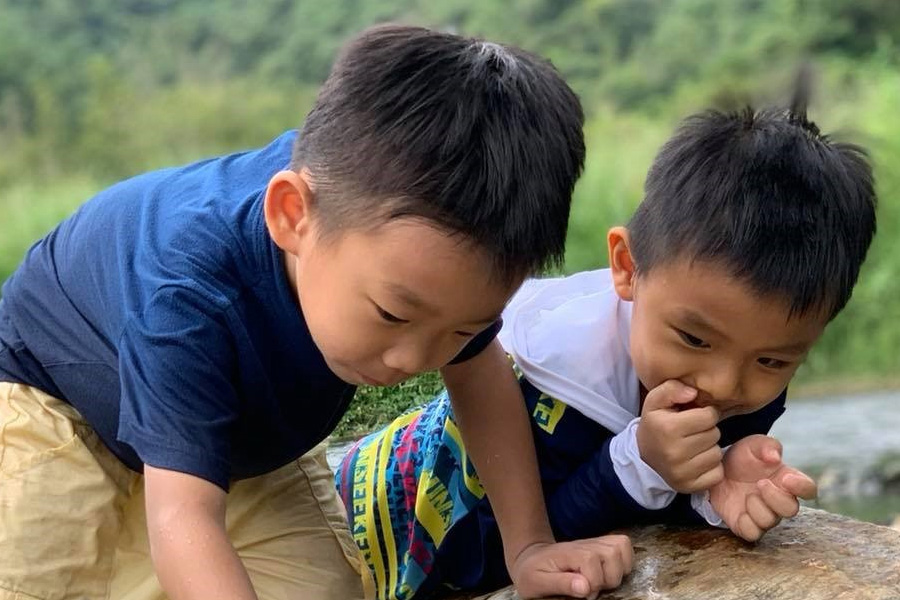(This report is provided by Dr. Hui-Ting Wang and Dr. Ronaldo Luis Jara’s research team)
In an inclusive educational environment, a growing number of students with autism and other physical and mental disabilities are learning along with students in regular classrooms. In order to effectively integrate students with physical and mental disabilities with their peers in the general classroom, an evidence-based approach to teaching and learning should be adopted.
This paper utilized systematic literature review on peer-mediated interventions, an autism evidence-based practice. Using the keywords peer-mediated interventions, autism, and inclusive education, ERIC and PsyINFO were used to search for literature in between 1977 and 2018. This study showed significant outcomes for peer intervention strategies applied to social skills. This study also presented the empirical basis for peer intervention strategies in the area of academic competencies. Peer supporters, in fact, were found perform better in the areas of social skills, academic competence, and emotional development.
The types of peer intervention strategies include: peer modeling, peer initiation, peer supervision, peer networking, peer mentoring, and peer involvement in group contingency. The steps for implementing peer intervention strategies include: selecting peers, training and supporting peers, interacting with peers and target students in a structured environment, and finally, implementing in a natural classroom setting.
Finally, we found that the use of peer intervention strategies may well respond to contemporary educational trends that emphasize competency-oriented learning, changing from teacher-centered learning to student-centered learning. This study provides inspiration for future research and educational applications of inclusion.
Teachers enrich themselves with daily grind of teaching typically developing students as well as those with autism and other physical and mental disabilities in a common but differentiated way. Teaching with an evidence-based approach has a higher probability and effectiveness in assisting teachers to teach and optimize student learning. Peer-mediated intervention is one of the evidence-based practices for teaching students with autism and may benefit all children. It not only facilitates the involvement of students participating in meaningful educational activities together, but also promotes comprehensive development in a systematically and proactively manner. Peer-mediated interventions are effective in addressing academic skills, social skills, communication, stereotypical behaviors of students with autism, and emotional development of typically developing students. When students participate in educational activities in pairs or small groups, teachers can provide additional educational support scaffoldings that add to the learning outcomes.
Teachers may start with inviting students of similar age, who are linguistically and emotionally stable with caring characteristics, are willing to follow instructions, and have good attendance to be peer supporters. In addition to peer modeling of social skills, teachers can also instruct peers to provide environmental stimuli and clues to assist students with autism or other physical and mental disabilities to elicit appropriate behaviors. Teachers can train the peer supporters to observe the behaviors of students with autism or other physical or mental disabilities, and meanwhile implementing important peer intervention skills such as prompting and praising. In assisting academic skills, peer supporters can practice rephrasing, using synonyms, simplifying tasks, and analyzing tasks in steps. In the process of peer intervention, it is crucial for teachers to design educational activities with common goals and expected celebrations in advance, and to provide timely peer supervision and recognition.
This paper utilized systematic literature review on peer-mediated interventions, an autism evidence-based practice. Using the keywords peer-mediated interventions, autism, and inclusive education, ERIC and PsyINFO were used to search for literature in between 1977 and 2018. This study showed significant outcomes for peer intervention strategies applied to social skills. This study also presented the empirical basis for peer intervention strategies in the area of academic competencies. Peer supporters, in fact, were found perform better in the areas of social skills, academic competence, and emotional development. With the contemporary educational reforms in Taiwan, the use of peer intervention strategies may change from teacher-centered learning to student-centered learning, which is aligned with the philosophy of competency-oriented teaching. This study provides inspiration for future research and educational applications of inclusion.











